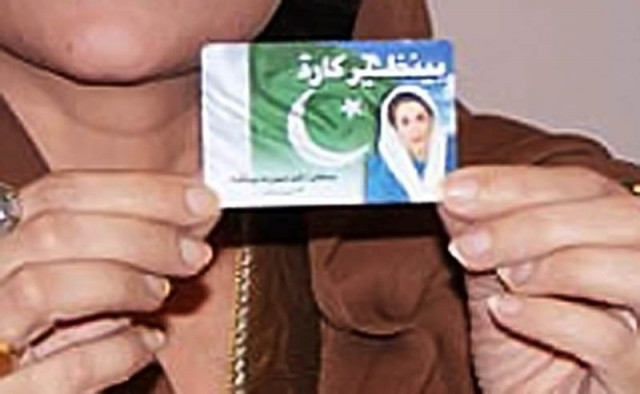Poverty survey remains incomplete in 3 years
Second phase of Rs9.9b exercise yet to get off the ground

. PHOTO: PID
The BISP administration launched the initial phase of the survey in July 2016 in 16 districts, which was to be completed by the end of that year, while a strategy was formulated to replicate the survey in all districts in January 2017. However, the authorities failed to complete the survey in the specified districts in the first phase, while the second phase was never launched.
According to sources, the previous government had in 2017 directed the BISP to complete the countrywide survey before the 2018 elections. To that end, the BISP hired companies to execute the plan. The government had also launched a national rollout programme on March 8 last year to carry out the survey in districts across the country. According to the programme, a poverty survey named 'National Social and Economic Registry' was to be conducted in 137 districts of the country. However, despite the passage of a year, the activity is yet to get off the ground.
‘Grass-roots organisation key to tackling household poverty’
The sources privy to BISP affairs say that representatives of the companies hired by the programme are working in the relevant districts so that they can provide a timeframe during which they will be able to complete the survey. However, they add, so far no data has been shared by the companies with BISP officials.
The BISP sources said that to conduct the countrywide survey, the 140 districts of the country have been divided into eight clusters on geographical basis. The data will be gathered through computer-assisted personal interviewing and work on it is under way. According to available information, the Aurat Foundation and the Rural Support Programme Network (RSPN) are implementing partners in the survey, while the Initiative Development Solution, a private-sector consultancy, has been hired for third-party monitoring of the clusters.
The sources say that Aurat Foundation is responsible for the survey of clusters 1 to 5, while clusters 6 to 8 will be covered by the RSPN. Clusters 1 to 5 include Islamabad, Rawalpindi, Gujranwala, Muzaffarabad, Rawlakot, Mirpur, Sargodha, Faisalabad, Lahore, Multan, DG Khan, Sahiwal, Gilgit-Baltistan, Malakand, Hazara, Mardan, Peshawar, Kohat, Bannu, Larkana, Sukkur, Shaheed Benazirabad, Mirpurkhas and Bahawalpur. Clusters 6 to 8 include Karachi, Hyderabad, Kallat, Makran and other divisions.
During 2010-11 a poverty survey was carried out in which the data of 27 million families was obtained. Of these, around 7.7 million people were living below the poverty line. As a result of the survey, it was decided that these people would be granted Rs3,000 on a quarterly basis under the BISP. In the past five years, the amount has been transferred to 5.6 milion people on quarterly basis, while the rest are yet to receive it.
According to the BISP Act 2010, it is important to carry out a survey after every four to five years so that it can be ascertained whether the percentage of those loving below the poverty line is increasing or decreasing.
'Wealth creation' imperative to alleviate poverty: PM
A fresh survey was expected to commence in fiscal year 2015-16, but it was delayed due to multiple reasons. The 16 districts that were chosen for the survey in the initial phase included four from Punjab, three from Sindh, three from Khyber Pakhtunkhwa, three from Balochistan and one each from Gilgit-Baltistan, Azad Kashmir and the tribal region.
A poverty survey under the 'desk approach' was conducted in Sukkur, Nasirabad, Bahawalpur and Haripur, where those in need of assistance submitted their details at the relevant desk. A house-to-house survey was conducted in 12 other districts, including Faisalabad, Layyah, Chakwal, Jacobabad, Thatta, Charsadda Lakki Marwat, Qilla Saifullah and Katch.
According to BISP officials, the survey process on cluster basis in different districts is underway. In some of these districts the survey has been completed while the process is underway in others, they added.

1724319076-0/Untitled-design-(5)1724319076-0-208x130.webp)

















COMMENTS
Comments are moderated and generally will be posted if they are on-topic and not abusive.
For more information, please see our Comments FAQ